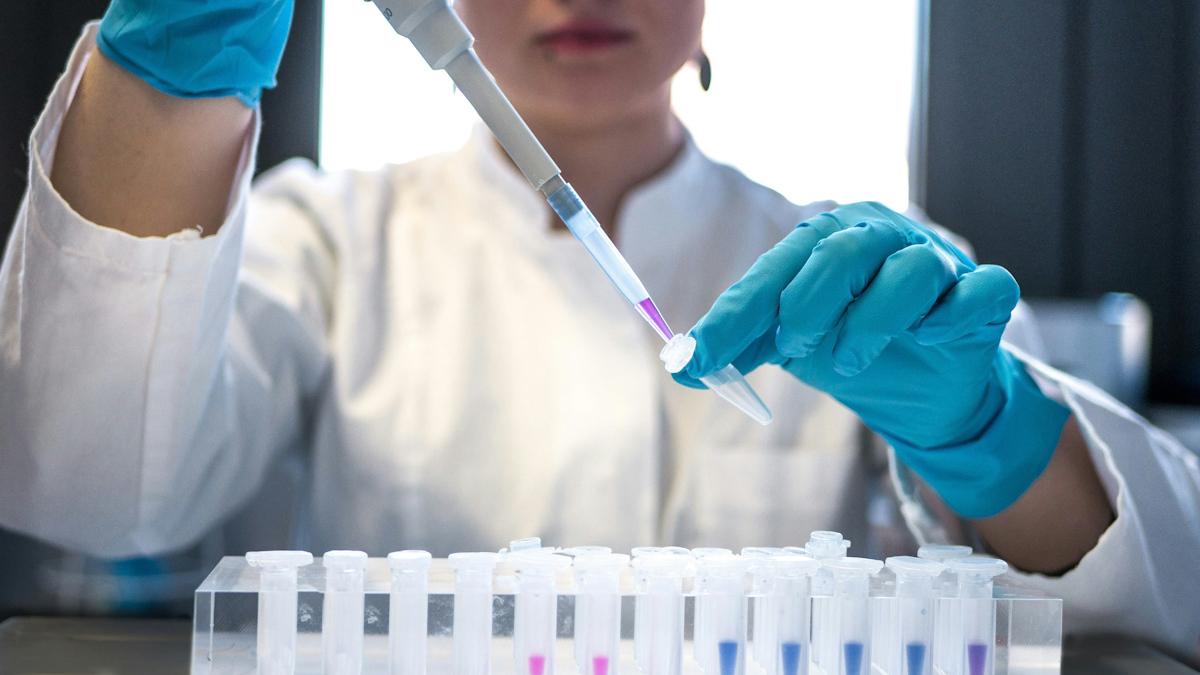Will the UK ever produce a world-class biotech company?

The sale of microchip company ARM Holdings has some lamenting the loss of that rare thing, a British world-class company. Can a new wave of biotech start-ups produce a company which can grow into a world-beater, or will they suffer the same fate? Andrew McConaghie reports.
Recent news that microchip company ARM Holdings is to be sold to Japan’s Softbank for £24.3 billion was disheartening for some, as it means one of the most exciting and successful hi-tech companies to be built in the UK in recent years will be taken out of British ownership.
Founded in 1990 in Cambridge, the company has eclipsed all of its more established rivals by designing highly efficient next-generation microprocessors, which are now used in most of the world’s 2 billion smartphones.
Softbank and its founder Masayoshi Son have spotted ARM’s potential to become even more dominant in the coming decades: its microchips are expected to underpin the Internet of Things (IoT), creating ‘smart homes’ and ‘smart cities’ and a digitally-connected world.
Of course, biotechnology also promises to change the world by transforming medicine, and this is another sector where the UK is among the global leaders.
Indeed Cambridge, known as the UK’s ‘Silicon Fen’ because of its tech leadership, is also home to a formidable life sciences cluster, having sprung from the university’s world-class medical research.
Cambridge scientists were responsible for the discovery of monoclonal antibodies, drugs which account for six out of 10 of the world’s biggest-selling medicines, and are the backbone of biotech medicine today.
In summer 2016, there is great optimism in Cambridge’s biotech sector, which is booming thanks to a rich ecosystem of excellence in medical research centred around the university, local hospital Addenbrooke’s, and institutions such as the Medical Research Council (MRC). Adding even more to this picture is big pharma AstraZeneca, which is re-locating its global research HQ to the city.
Anker Lundemose is chief executive of Mission Therapeutics, a Cambridge-based biotech poised to develop a first-in-class drug, which could one day be a breakthrough against Parkinson’s disease.
He says there is great momentum building in the city, centred on the Cambridge Biomedical Centre, a single site which will bring together academics, hospitals, pharma and biotech.
“You need only look at all the cranes near Addenbrooke’s and AstraZeneca, house prices in Cambridge. It is really booming here, a fantastic story.”
This optimism exists despite a number of doubts: a ‘bear’ market in global biotech after two years of record funding and IPOs; the uncertainty surrounding Brexit; and the recent failure of a pivotal trial for Circassia, a company which had been hailed as a rising star in British biotech.
World-class science
Cambridge’s ability to generate new medical ideas and discover new drug classes isn’t in doubt – but its biotech sector still has to prove it can develop and bring them to market.
Humira (adalimumab), the monoclonal antibody drug which is currently the world’s biggest-selling medicine, was discovered in Cambridge by MRC scientist Sir Greg Winter. He founded the spin-out company Cambridge Antibody Technology (CAT) in 1989 with fellow scientist John McCafferty and entrepreneur David Chiswell to develop the drug.
However CAT wasn’t destined to become a global giant – its development partner BASF was bought out by Abbott (now AbbVie) which turned the drug into a blockbuster and reaped most of the benefits.
Then in 2006, CAT was bought by AstraZeneca for £700 million, dashing hopes that the UK could produce a world-class biotech to rival the success of US companies Amgen and Genentech.
This pattern has been repeated numerous times since, with promising start-up companies being bought out before their lead drug reaches the market.
Despite this, there is belief that UK biotech sector (by far Europe’s biggest) is on the cusp of a breakthrough and that, just maybe, it could finally produce a world-class biotech company.
Kymab
One of those co-founders of CAT 25 years ago, David Chiswell, is still working in UK biotech, and his enthusiasm and belief in the sector is undimmed.
[caption id="attachment_16565" align="alignnone" width="320"] UK biotech veteran and Kymab's chief exec David Chiswell[/caption]
UK biotech veteran and Kymab's chief exec David Chiswell[/caption]
Today Chiswell is chief executive of a new Cambridge-based company Kymab, which has developed a next-generation platform for discovering monoclonal antibody drugs which shows enormous promise.
Kymab’s scientists have engineered a mouse with the full set of genes encoding the human antibody repertoire. This new technology, dubbed Kymouse, can produce a huge range of human antibodies which promise to be more potent and selective than those from existing platforms.
Its lead candidate is an antibody therapeutic targeting OX40L, for indications that include inflammatory disease and Graft versus Host Disease (GvHD). Currently in pre-clinical development, it will enter the clinic in 2017, and could be the first of many for the company.
Talking to pharmaphorum in Kymab’s offices at the Babraham science park just outside Cambridge, Chiswell said the opportunity to lead Kymab was too good to miss.
He believes the company could, indeed, be a European Genentech or Amgen.
“Kymab has all the requisites to be a big pharmaceutical company – we have the right technology, the right investors, and the right management team.”
Probably the biggest reason why the UK and Europe have failed to match the success of the US biotech sector is less private funding or enthusiasm for IPO stock market listings. But things have changed in recent years, with more local venture capital funds developing, such as Woodford and Imperial Innovations. In addition, any biotech company can now float on the New York-based Nasdaq exchange, allowing firms to raise money from US investors without re-locating to the States.
Chiswell says this change has allowed UK and European biotechs to connect with US investors.
“They don’t care where the biotech company comes from – though they might demand that you come to their offices when they want to ask questions.”
Asked about how a successful UK biotech company can avoid the age-old problem of being swallowed up by a big pharma buyer, Chiswell is realistic.
“To some extent you can’t stop that happening, and you probably shouldn’t resist it. If someone comes in with a great offer, you can’t ignore it,” he concedes.
Nevertheless, Chiswell is focused on leading Kymab for the next 4-5 years, by which time he hopes the company will have gone public and have several drugs in clinical development.
F-star
Another privately-held biotech tipped for great things is F-star. Also resident in Cambridge, the company specialises in bispecific antibodies - these hit two targets instead of one, and promise greater efficacy and safety than traditional monoclonals.
Bispecific antibodies are being pursued by a number of companies, particularly in oncology. F-star’s chief business officer Jane Dancer says they could prove more effective than the hundreds of combinations of different immunotherapy drugs now being tried out in cancer trials.
[caption id="attachment_16589" align="alignnone" width="270"] F-star's Jane Dancer[/caption]
F-star's Jane Dancer[/caption]
The company is preparing for a second financing round later this year, with the aim of raising enough funds to take the next two programmes into the clinic.
Dancer says that, along with building a pipeline over the last 4-5 years, the company has also built a culture and mindset needed to move from being simply a molecular biology platform to a fully-fledged biotech with people who understand drug discovery, development and how to take a drug to market.
The company’s most advanced candidate is FS102, which is aimed at treating HER2+ breast cancer, in patients who have become resistant to established treatments, such as Roche’s Herceptin and Perjeta.
FS102 has been licensed by Bristol-Myers Squibb (BMS), which is looking to broaden its position with cancer treatment. The molecule has been spun out into a separate ‘asset-centric’ company called F-star Alpha, an approach which would allow BMS to acquire just the molecule and its IP.
This reflects a ‘modular’ corporate structure at F-star, where the company’s pipeline assets and technology platforms are in separate units – precisely to allow third parties to invest in, or acquire, specific assets.
“If you have a company with a very powerful platform that is delivering a steady stream of products and you have them all bundled together, you can’t necessarily realise their full value,” says Jane Dancer.
“I’ve seen this in previous companies I’ve worked in where, in an acquisition, the programmes will be valued more highly than the platform. By teasing them apart you can realise the value, but also to get investment directed to where you want it.”
F-star’s company structure is designed to minimise its risk and maximise its value. This is just one of a number of tactics used by biotech firms aimed at preventing the classic biotech pitfalls of a company collapsing because its lead product has failed, or because of a lack of funding.
Jane Dancer says the BMS deal has helped validate its platform and its own scientific expertise, as it filed the IND package before handing over to BMS for preliminary clinical studies.
BMS paid $50 million upfront for the rights to FS102, with another $425 million if it opts to develop – money that will fund F-star’s own in-house pipeline of immuno-oncology candidates.
Mission Therapeutics
Mission Therapeutics is another new Cambridge-based firm which is carving out its own specialist, and highly promising, area.
It is developing drugs which target deubiquitinating enzymes (DUBs), which are involved in a great many processes in the human cell, including DNA damage and cell proliferation.
While many companies have been looking at ways to develop drugs to inhibit DUBS, Mission is the first to succeed in creating a chemistry platform to do it.
The company was originally focusing on oncology, but a chance discovery led its researchers to investigate the role of DUBS in Parkinson’s disease – and it has now generated hugely promising proof-of-concept results from animal studies.
This exciting platform helped the company raise £60 million through a Series C financing in February 2016, taking its total funds raised to nearly £90 million. This will help it to identify its lead candidate in the next month or two, with the aim of starting phase 1 trials by Q4 of 2017.
So does Lundemose think Mission can go all the way, and be a ‘big biotech’ within the next 10 years or so?
“I say that I’m the captain on this flight, but the plane is owned by my investors. So, at the end of the day, they are going to make that call. I’m driven by opportunity and creating wealth, growth for the company and for the patient,” he says.
“Whether this company can be the next Biogen or Celgene, I don’t know. The problem in the UK is that before you get down that path, someone will come along and acquire you.”
Even with a comfortable cash pile, Lundemose says he remains focused on a 2-3 year time line, rather than a 10-year horizon, a pragmatic approach aimed at anticipating some major near-term challenges.
Lundemose says the biggest reason for the far greater success in US biotech, compared to Europe, is its access to much more capital funding.
This help biotechs invest in the most promising science, not just the programmes that can be progressed most quickly. There are signs that the US approach of higher levels of investment is being adopted in Europe, not least with Mission’s own £60 million funding.
Leading the venture capital syndicate funding Mission are London’s Imperial Innovations and Paris-based Sofinnova, with Roche, SR1 and Pfizer venture funds also contributing.
These companies are just a few of the dozens emerging from the UK: other notable ones include two Oxford-based immunotherapy-focused firms, Adaptimmune (which raised £127.8 million from its IPO last year) and privately-held Immunocore. It’s too early to say if any of the UK’s current crop of fresh new biotech firms can make it to the big time.
UK biotech’s approach is, of course, pragmatic: not to plan for world domination, but to seize opportunities (clinical or financial) whenever and wherever they present themselves, and hope to create compelling science and a sound commercial offering.
However the UK’s biotech association the BIA is keen to see financing continue to support the sector; it says the country needs a group of companies to progress to that ‘mid tier’ size to help build confidence and scale across the sector.
One development this year helped to create one such UK middleweight: the £441 million merger between Vectura and Skyepharma, to create a leader in the respiratory field.
It will take the best part of 10 years before it’s clear which, if any, of these companies will become major successes - biotech equivalents of ARM Holdings.
But there is no magic formula to guarantee this can happen: experience has shown that that takes a rare combination of great science, good business judgement, and a substantial dose of good luck.
Read the BIA/Evaluate Pharma report Money, momentum and maturity: UK biotech financing and deals in 2015/16












